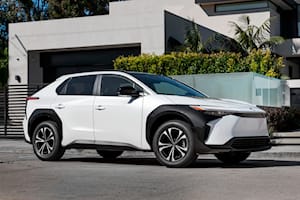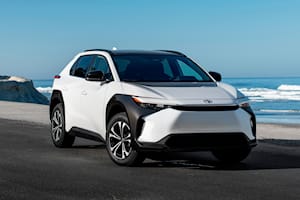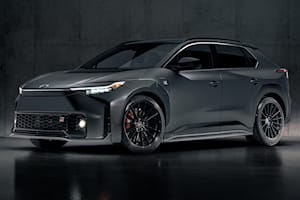
It’s odd that there are no electric cars from Toyota with so many automakers, especially going into 2020, having decided to hop aboard the zero-emissions bandwagon and debut EVs of their own. In lieu of going fully electric, Toyota has decided to instead focus on hydrogen and hybrid technologies. There are a couple of Toyota EV cars and trucks in the works for the future, however.
Though there aren’t any pure all-electric Toyota cars for sale on the US market, there are many regular hybrids such as the RAV4 and Prius, as well as their PHEV counterparts. The only model that could be considered an electric Toyota vehicle would be the Mirai. Technically classified as a Fuel Cell Electric Vehicle or FCEV, its hydrogen PEMFC converts H2O into electrons, which the electric motor then conjures into 153 horsepower. Outputs are directed through a single-speed auto transmission to the front wheels in the existing edition.
There is news from Toyota on a new Mirai scheduled to debut by 2021. It promises to be better and sexier by comparison. The automaker claims that the future version will come with a rear-wheel-drive system to provide more space for a larger tank. This, in turn, extends the cars driving range and mitigates the issue of the very restrictive refueling network. The current version's 312-mile range already tops most EVs in the USA but its cost is a little on the steep side of the segment. The nameplate is typically proffered up as a standalone trim.
| Model | Power | Engine | Base Price |
|---|---|---|---|
| Toyota bZ4X | 201 hp | Electric | $42,000 |
| Toyota RAV4 EV | 154 hp | Electric | $49,800 |
Before you make a purchase decision, shoppers should peruse CarBuzz’s in-depth reviews where everything from outright performance and capability to comfort and cargo practicality are assessed. We also give ratings based on a comprehensive scoring system of factors such as safety, reliability, and value for money. Below, we share just some of the benefits and disbenefits of the Japanese brand’s gasoline-free automobiles:




